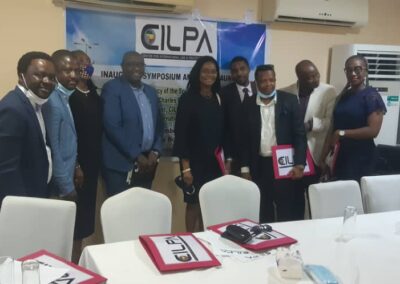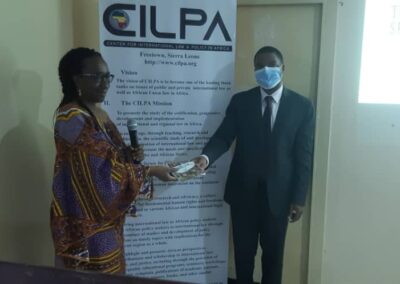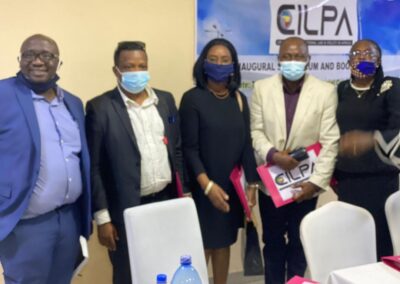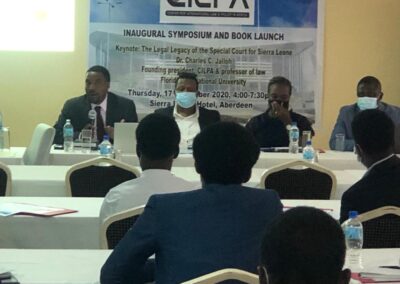Tuesday, 17 December 2020, Freetown, Sierra Leone
The Centre for International Law and Policy in Africa (CILPA) hosted a symposium, on 17 December 2020 in Freetown, Sierra Leone, on The Legal Legacy of the Special Court for Sierra Leone. The purpose of this symposium was to examine, from a national perspective, whether the Special Court for Sierra Leone (SCSL), which was established jointly through an unprecedented bilateral treaty between the United Nations (UN) and the Government of Sierra Leone in January 2002 and completed its work in December 2013, left a legal legacy for the jurisprudence and practice for the nascent and still unsettled field of international criminal law. With the goal of advancing Sierra Leonean perspectives on the achievements and challenges that confronted the SCSL, and the role that the SCSL played in the country’s transition from conflict to peace, leading experts on the SCSL discussed lessons learned for Sierra Leone as well as other post-conflict situations in Africa and other regions of the world.
Two central themes guided the symposium discussions which was divided into two panels. The first theme, which looked back, assessed whether the SCSL as a mixed national-International penal tribunal made useful jurisprudential contributions on key legal questions with wider implications for the field of international law. In the main, we focused on the impact of the SCSL judicial rulings on greatest responsibility personal jurisdiction, the war crime of child recruitment, forced marriage as a crime against humanity, amnesty, immunity and the relationship between truth commissions and criminal courts.
The second theme, which was more forward looking, sought to assess the continued relevance of the SCSL’s innovative “hybrid” model as States from different regions contemplate how best to fulfill the present demands for accountability. These range from Guinea to Liberia, from the Central African Republic to South Sudan, to Syria and Myanmar. The symposium and book launch, which brought together leading Sierra Leonean experts from academia, legal practice and civil society, should advance greater public understanding of the SCSL’s significant contributions to post-conflict Sierra Leone as well as to the field of international criminal law and justice.
A new book on the symposium theme, The Legal Legacy of the Special Court for Sierra Leone (Cambridge, July 2020) by Professor Charles C. Jalloh, who was the keynote speaker, was also launched at the event. Copies of the book were made available to participants.




